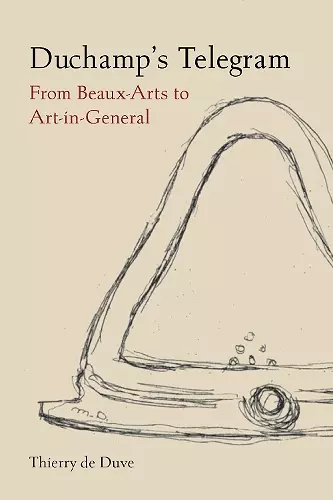Duchamp’s Telegram
From Beaux-Arts to Art-in-General
Format:Hardback
Publisher:Reaktion Books
Published:1st Jun '23
Should be back in stock very soon

In 1917, Marcel Duchamp sent out a 'telegram' in the guise of a urinal signed R. Mutt. When it arrived at its destination a good forty years later it was both celebrated and vilified as proclaiming that anything could be art; from that point on, the whole Western art world reconfigured itself as 'post-Duchamp'. This book offers a reading of Duchamp's telegram that sheds new light on its first reception, corrects some historical mistakes and reveals that Duchamp's urinal in fact heralded the demise of the fine arts system and the advent of what Thierry de Duve calls the 'Art-in-General' system. Further, the author shows that this new system does not date from the 1960s but rather from the 1880s. Duchamp was neither its author nor its agent, but rather its brilliant messenger.
ISBN: 9781789146981
Dimensions: unknown
Weight: unknown
456 pages